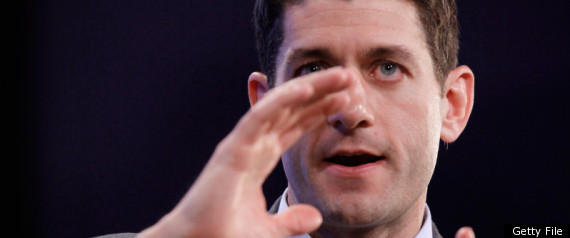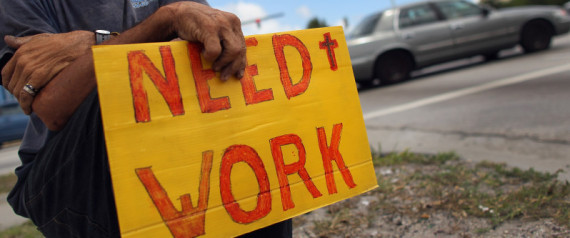 The stalemate is over, but the partisan clash over spending and borrowing has irrevocably shifted things in D.C. Here's how.
The stalemate is over, but the partisan clash over spending and borrowing has irrevocably shifted things in D.C. Here's how.
The debt crisis left in its circus-like wake five permanent truths.
1. A new precedent. Debt-ceiling increases are now tied to deficit reduction. With President Obama's signature, every future president until America's debt monster is tamed must come to Congress on bended knee and plead for the privilege of avoiding default. What had been an unhappy obligation of governance is now a lever to impose either spending cuts or tax increases in the pursuit of deficit reduction. A senior House Democrat on the Ways and Means Committee did not dispute this point. "We are bearing the burden of having to pass our own president's legislation." One side note: This episode also proves that the 14th Amendment's linkage to debt discussions is dead. Numerous House Democrats said off the floor on Monday that if there was ever a time to invoke the amendment and raise the debt ceiling, it was now. "I still hold out hope," said Rep. Sheila Jackson Lee (D-Texas). "It's very important." Lee conceded, though, that her hopes are probably dashed and the issue is settled.
2. Bipartisan entitlement protection lives on. For all the GOP fervor to rein in government spending, the agreement defers all decisions about entitlement spending to a so-called super committee with an internal architecture almost built for stalemate. If that happens, Republicans who now crow about changing the way Washington works will see the knife of across-the-board spending cuts exempt Social Security, Medicaid, unemployment insurance, veterans benefits, food stamps, and other antipoverty entitlements. Yes, the automatic cuts can hit Medicare, but it won't touch beneficiaries. The cost-cutting can only reduce payments to providers--a scheme that Congress has tried over and over only to be undone by successful lobbying from doctors and hospitals. This means that the deal repeats a futile process that Congress has tried and abandoned before--achieving deficit reduction on the backs of well-connected and influential doctors and hospitals.
3. Congress's back-loading of spending cuts lives on. A Democratic president and a tea party-inspired Republican Party will mutually agree to cut domestic discretionary spending (defined by budget authority) by $10 billion compared with 2011 budget totals. That's out of projected domestic discretionary spending of just more than $2 trillion for fiscal 2012 and 2013. The big cuts are all deferred to another Congress and a reelected Obama, or to a new Republican president. But the trajectories for defense and all other fundamental actions of day-to-day government--although weakened by the lack of inflation adjustments--will be tilted downward only slightly. Rep. Mike Kelly (R-Pa.) is one of the freshmen who came to Washington to shake things up, and he sees the spending cuts, lower by $24 billion than the House GOP budget, as defensible and even laudable. "The process is slow," he said. "I see that now. It takes time. I mean, my wife wants me to lose 50 pounds, but I can't do it by this weekend."
House Appropriations Chairman Hal Rogers (R-Ky.) said the cutting will stick. If not, Congress could see a budget clash and a shutdown showdown at the end of the fiscal year on September 30. The back-loading of cuts goes a long way toward avoiding such a mess. When it comes to spending, the back-loader is still the machine of choice in Congress.
4. Speaker John Boehner wobbled but didn't fall. And he won't. Internally, the House GOP's sense is that the leadership pulled together and that Majority Leader Eric Cantor's movements out of the talks and against tax increases didn't undermine Boehner nearly as much as first thought. In the clutch, Boehner and Cantor marched side-by-side and delivered a final product--and they didn't ask for permission to pass it. On Sunday, Boehner scheduled his conference call to brief members for the same time that Obama was announcing the deal to the nation. The message: The deal is done. I'm not seeking your reaction as much as laying out the contents.
5. The first quarter of 2013 will be a doozy. Here's what is in store: Another debt-ceiling request will be due. Spending cuts under either the special committee's direction or across-the-board sequestration will begin to bite in big numbers at the Defense, Homeland Security and State departments, as well as in all discretionary government services. The budget deal calls for $917 billion in these cuts, but only a small fraction (see back-loading section above) will occur in the first two years. The country will begin to feel the consequences of pushing the rest of the cuts through eight remaining budget years of the deficit-reduction deal. Also, if the super committee imposes new taxes, they will probably take effect in this time frame. Even if the committee doesn't impose tax increases, all the Bush tax cuts are due to expire on January 1, 2013--forcing intervention to protect some or all of them. "It's going to be one festive first quarter of 2013," Rep. Robert Andrews (D-N.J.) said. Festive is one word. It might not be the one economists will use.
Origin
Source: the Atlantic  WASHINGTON -- With Medicare at the top of lawmakers' fall agenda, Tea Party movement leaders hope to ignite support for Republican plans to transform the popular federal healthcare program for the elderly.
WASHINGTON -- With Medicare at the top of lawmakers' fall agenda, Tea Party movement leaders hope to ignite support for Republican plans to transform the popular federal healthcare program for the elderly.











